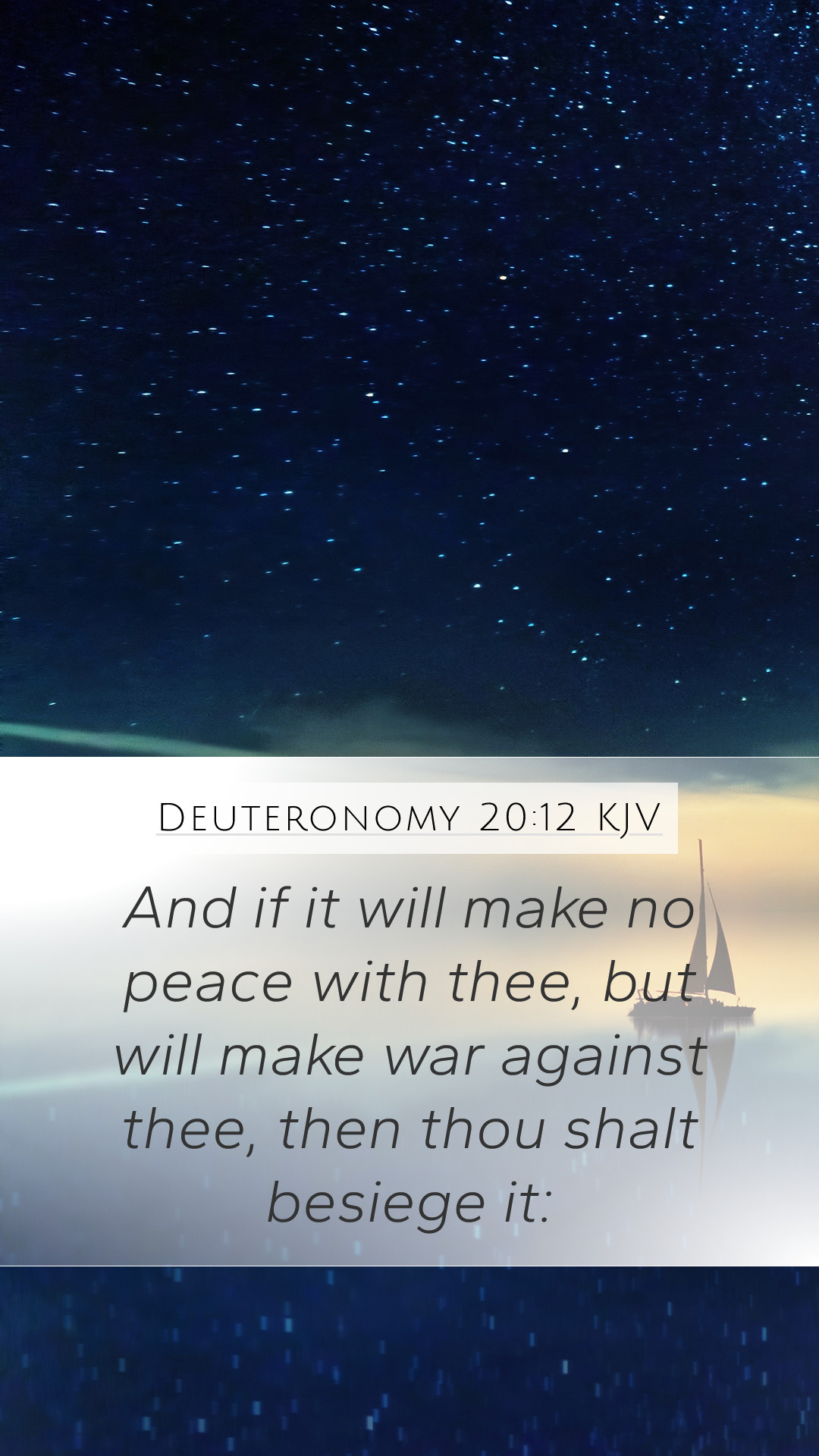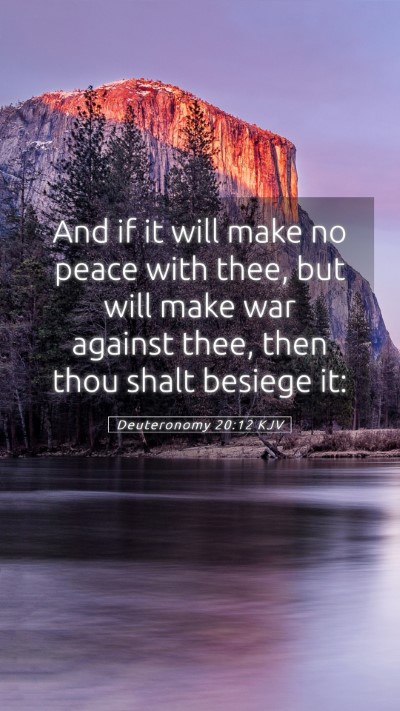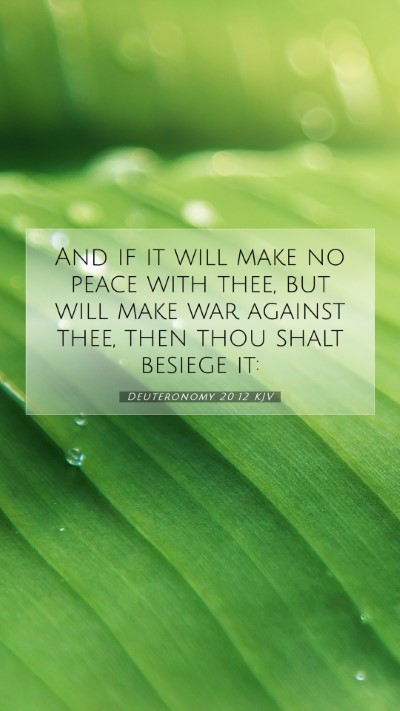Understanding Deuteronomy 20:12 - A Comprehensive Bible Verse Commentary
The verse from Deuteronomy 20:12 reads, "And if it will make no peace with you, but will make war against you, then you shall besiege it." This passage conveys critical directives regarding how Israel should engage with cities that present a choice of peace or conflict. Below, you will find a summarized interpretation of this verse that draws from esteemed public domain commentaries, specifically those by Matthew Henry, Albert Barnes, and Adam Clarke.
Contextual Background
The Book of Deuteronomy is a record of Moses' final speeches to the Israelites before they enter the Promised Land. This particular verse is part of a larger section that provides guidelines for warfare, emphasizing the importance of seeking peace before resorting to conflict.
Verse Interpretation
Initial Peace Offering
According to Albert Barnes, the directive to propose peace before engaging in war reflects God's desire for His people to pursue peace whenever possible. This can be seen as a fundamental principle of justice and righteousness that resonates throughout Scripture.
Consequences of Rejection
Matthew Henry points out that should the offer of peace be rejected, the Israelites are then authorized to take decisive action. This illustrates God's allowance for self-defense in the face of hostility, showing a balance between seeking peace and affirming rightful defense against aggression.
Divine Authority and War
Adam Clarke emphasizes that this command reflects a divine authority guiding warfare, establishing that God is a chief commander in battles. The Israelites are not to assume that they can engage in conflict frivolously but rather must understand the gravity and moral implications of warfare.
Lessons and Applications
These insights extend beyond mere historical reference; they provide vital Bible study insights for modern audiences:
- Seeking Peace: Individuals and groups, such as bible study groups, can take away the importance of attempting peaceful resolutions in conflict situations.
- Respecting Boundaries: The principle of respecting others' autonomy until provoked can resonate particularly within community interactions.
- Evaluating Just War: Contemporary discussions regarding biblical exegesis may benefit from reflections on the conditions under which warfare can be considered just.
Cross References
This verse is related to several other scripture passages that highlight similar themes:
- Exodus 23:20-22 - Divine guidance in leading Israel to peace.
- Proverbs 16:7 - The principle that when a man's ways please the Lord, he makes even his enemies to be at peace with him.
- Matthew 5:9 - The Beatitude stating, "Blessed are the peacemakers, for they will be called children of God."
Conclusion
In summary, Deuteronomy 20:12 is an essential verse regarding the ethics of conflict and the divine call toward peace. Through careful bible verse analysis and the wisdom of esteemed commentators, individuals seeking a deeper understanding of this scripture can appreciate its application in both historical and modern contexts.
Further Study Suggestions
For those interested in exploring more on this topic, consider engaging with bible study courses or utilizing bible study resources that delve into the themes of peace and conflict in a biblical context.


